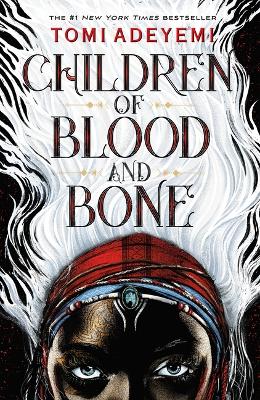Reviewed by nannah on
Content warnings:
attempted rape
child abuse (manipulation & emotional abuse)
Representation:
Everyone is Nigerian (I assume? They mention Lagos)
Zélie Adebola remembers the night her entire world changed. The night magic disappeared, the night Orïsha’s king killed her mother, every single maji, and left Zélie’s people oppressed and hopeless. But when the king’s daughter runs away with a holy artifact that could bring magic back, Zélie has a chance to bring hope back to her people.
With the very first page, I was drawn into this world. The magic system, the mythology, the characters, the writing. The set-up was so beautiful I couldn’t imagine not loving this story. I mean … giant cat steeds? Is there anything more badass than that?
Unfortunately, the introduction of the love interest and the “magic quest” dampened my enthusiasm. One by one, fantasy cliches began to layer up on the plot, and then when the romance began with the characters locking eyes and a “buzz” happening (in a very non-romantic setting), I just … had to close the book for a second to recover. Such creativity here and then there’s that?
The plot could be summed as the characters having to find holy artifacts to participate in a ritual on a specific day or else magic is lost forever. And, of course, the main character is the “one” to perform the ritual, too. It’s all a little much. And yes, I know every story has been told before and that what matters is how it’s told. And also that, you know, non-white people deserve stories white people have had for centuries. I’m not really a person who should talk about this (lmao, because I’m white), but you know what I mean. But I guess I was just disappointed, because literally everything else was just so masterfully done, it just seemed like this could have been done better?
The characters in general, though? Amazing. I’m in love with each and every one (except for Inan … we’ll get to that). I even love the villain, because he was just done So Very Well -- even when he talked like a stereotypical villain, lmao! He had his reasons, he had his backstory, and I just believed him every time he spoke that he was speaking from his own point of view, and not to be … you know, “evil”. And his daughter; her character arc was so satisfying to read. She's the princess who goes from what’s considered “weak” to confident and self-assured. She didn’t have much page time compared to the other main characters (Zélie; the love interest, Inan; and Zélie’s brother, Tzain), but her character growth was my favorite. She was still herself, but bloomed into a much brighter and confident version.
Now, Inan. He had such potential to be a complex and interesting character! He was torn between his (insta-)love for Zélie and his duty to his abusive father. However what could have been a battle for his own freedom from his father ended up being a flip-flopping instead of being true development ((show spoiler)[ aka Inan ended up betraying Zélie twice in the novel. Big-time plot events, where by the time the second one came around, I didn’t believe him. It was just like … really, we’re doing this again? The page before, Inan was saying how he couldn’t last another hour without Zélie by his side, waxing poetic about her appearance and saying how he would end this, etc., and then this page he was pledging genuine loyalty to his father without a real reason as to what happened between this change of thought. It was so jarring! ] ).
Anyway, this was still the best YA fantasy I’ve read in a long while, and that's my favorite genre! I’ll definitely pick up the sequel to see what else happens. And to see these characters grow even more.
Reading updates
- Started reading
- 24 February, 2020: Finished reading
- 24 February, 2020: Reviewed
